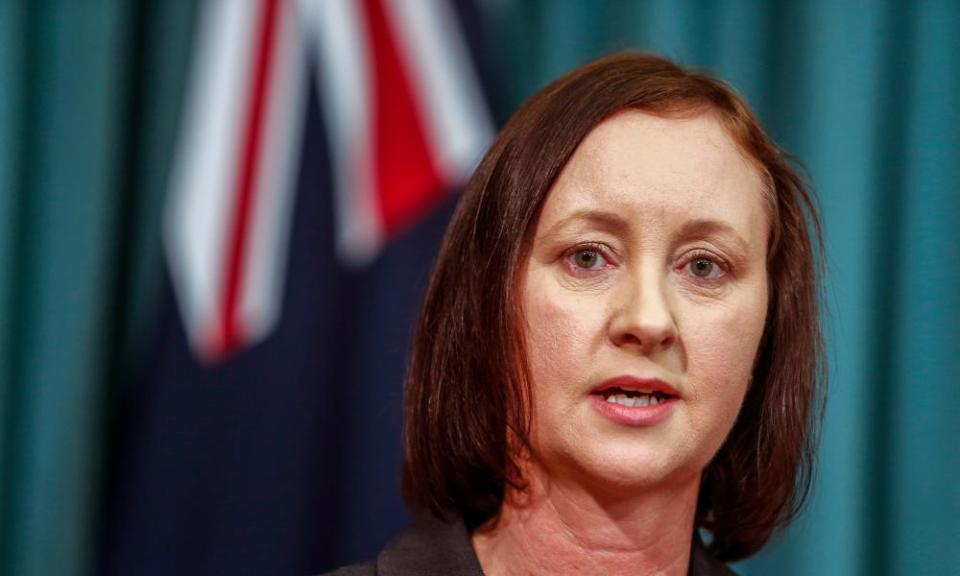Queensland government withdraws plan to ban reporting of unproven corruption claims before elections

The Queensland government has withdrawn a proposal that would ban the reporting of unproven corruption allegations during election campaigns, after a backlash from media outlets and the journalists’ union.
On Thursday the state attorney general, Yvette D’ath, tabled the legislation based on recommendations made by the Queensland Crime and Corruption Commission.
The proposal would have made the publication of a corruption allegation during an election period subject to punishment of up to six years in prison.
Brisbane’s only daily newspaper, the Courier-Mail, ran a front page headline describing the changes as a “war on free speech”.
Related: Clive Palmer says Queensland court action makes WA move to avoid damages 'unconstitutional'
The Media Entertainment and Arts Alliance Queensland organising director, Michelle Rae, told the ABC the proposed changes were designed to reduce accountability.
“It’s a process of what feels like battening down the hatches in a pre-election period,” she said.
“The change will undoubtedly restrain reporting on allegations of substance and MEAA members are simply trying to do their jobs.
“Queensland is one of the only states that doesn’t afford protections to journalists doing their jobs, and now wants to attack them further for reporting on the government.”
The CCC had twice recommended legislation to prevent vexatious and politically motivated complaints.
The anti-corruption body has grown increasingly concerned that baseless allegations of corruption were being lodged in an attempt to effectively slander political opponents; and that these complaints were subsequently being used as the sole basis for media stories, including in cases where the complaint was found to lack substance.
The CCC proposal would have restrained the reporting of corruption allegations that had been lodged within three months of the election and not yet assessed by the CCC.
It did not restrict reporting if the CCC had assessed the complaint and decided to launch an investigation.
It is unclear whether the proposal would have in practice restricted the media from reporting relevant facts about the conduct of politicians or candidates, or whether the restriction would only block reporting of the fact an unproven allegation had been made.
In a statement on Friday morning, D’ath said the government “respects the recommendations of the CCC”.
“However, given the limited time for the parliamentary Legal Affairs Committee to consider the law changes the CCC seeks, the … bill introduced yesterday in state parliament is withdrawn.”
In several high-profile instances the opposition Liberal National party has announced that it has made complaints to the CCC, but the CCC has ultimately found the alleged behaviour did not amount to corrupt conduct.
These include complaints made about the former treasurer and deputy premier, Jackie Trad, who was twice investigated and cleared.
Before the Brisbane council elections last year, the LNP released a public statement claiming it had referred “grave allegations” about a Brisbane councillor, Kate Richards, to the CCC.
Days earlier, the LNP’s powerful vetting committee had attempted to persuade Richards not to nominate to recontest her council seat.
In an extraordinary statement clearing Richards of wrongdoing, the CCC criticised the LNP’s decision to issue a press release stating it had made a complaint.
“The publication of a complaint can also lead to unsubstantiated allegations being aired publicly, and may give the appearance a complaint is motivated for political gain or other reasons,” the CCC statement said.

 Yahoo News
Yahoo News 